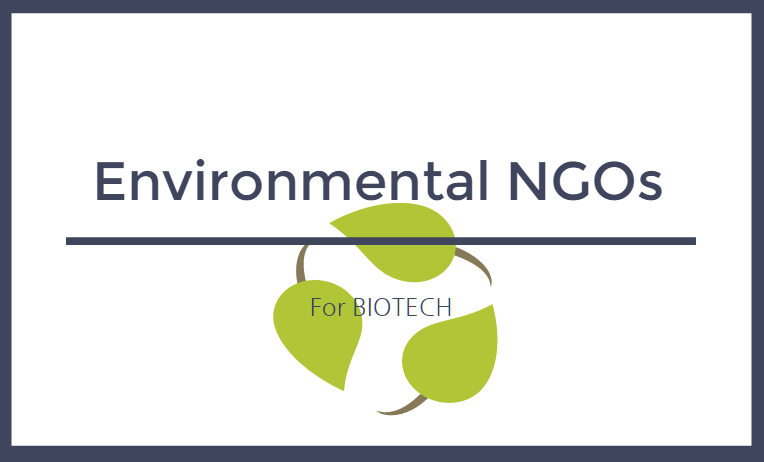Cooperation is needed to reduce malnourishment, not protesting
Environmental awareness is a growing issue for societies. The 2015 Paris Climate Conference highlighted the importance for national governments to take action on carbon and greenhouse gas (GHG) emissions to protect our planet, population and environment. Climate changes over the coming decades will put additional pressures on agriculture to produce greater amounts of food. Global food security needs to explore every technology for breeding new plant varieties in order to find solutions for the future, including the use of biotechnology. To contribute to global food security, the environmental non-governmental organizations (eNGOs) need to stand firmly behind biotechnology and genetically modified (GM) crops as a means of feeding an increasing population.
You might think I’m crazy for thinking that the environmental movement should support biotech and GM agriculture, but it’s the only way to move forward. Environmental, as defined by the Oxford dictionary, is “relating to the natural world and the impact of human activity on its condition.” Admittedly, food production has an impact on the environment, which should not be taken lightly. Recent innovations through GM crops have allowed for reduced tillage and chemical use, which both contribute to increasing food production and improving environmental sustainability. Although organic production sounds ideal, developing nations have struggled for centuries to produce enough food from organic farming methods. All farmers want is the choice to be able to decide for themselves whether to adopt GM crops, not be told by an eNGO that they can’t have access to this technology.
 In North America and Europe, we have an abundance of food and the luxury to have multiple forms of crop production. However, should food secure Europeans and North Americans support organizations that oppose enhancing food security through biotechnology in developing countries? Many eNGOs such as Greenpeace, Friends of the Earth and Third World Network, have taken this position and oppose biotechnology. Developing countries deserve access to every technology available to avert future food security disasters, which would include crop development researcher. Past actions by eNGO groups have unfortunately made it near impossible for these researchers to use modern biotechnology to develop new plant varieties that could benefit subsistence farmers in developing countries. This is in spite of the fact that biotechnology companies are making germplasm for new varieties freely available to developing country crop research institutions.
In North America and Europe, we have an abundance of food and the luxury to have multiple forms of crop production. However, should food secure Europeans and North Americans support organizations that oppose enhancing food security through biotechnology in developing countries? Many eNGOs such as Greenpeace, Friends of the Earth and Third World Network, have taken this position and oppose biotechnology. Developing countries deserve access to every technology available to avert future food security disasters, which would include crop development researcher. Past actions by eNGO groups have unfortunately made it near impossible for these researchers to use modern biotechnology to develop new plant varieties that could benefit subsistence farmers in developing countries. This is in spite of the fact that biotechnology companies are making germplasm for new varieties freely available to developing country crop research institutions.
Setting aside food security, when you consider changing climates, which NGOs don’t deny, we will need new crop varieties that have increased drought tolerance, insect resistance and higher yield traits for agriculture globally, but especially in the developing countries. Australia and the US have suffered droughts that impacted crop production, causing price increases and financial struggles for producers. Imagine these conditions in developing nations, the denial of GM crops only furthers food insecurity. This isn’t a very environmentally sustainable way of thinking, is it?
eNGOs need to end their hypocrisy by demanding more sustainability. It’s not sustainable if we don’t feed everyone when technologies exist that can aid in increasing food production. They need to end their politically-based opposition to GM crops and work with the biotech industry to support and promote this sustainable form of agriculture. Only by collaborating can global food security be meaningfully addressed. Surely humanitarian actions and compassion for those less well-off can be the motto for 21st-century agriculture, rather than protesting against the products, the companies and the farmers.
Call to Action!
If you are wondering what you can do as a consumer or a producer, the answer is share this information. Change comes from action. SAIFood encourages you to start by sharing your knowledge, concerns, and questions with your family and friends, whether it’s at the table, at the grocery store, on Facebook or Twitter. What we need to do, is talk about the need to work together rather than oppose one another’s values.
If you are really passionate about the topic, why not share this post with an eNGO or e-mail them. Let them know how you feel about the topic and how they can’t represent your values.


